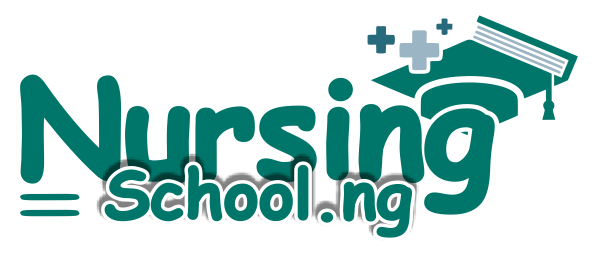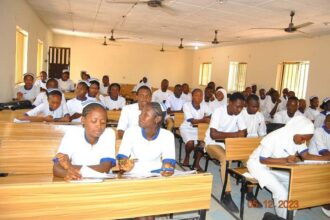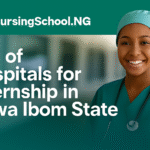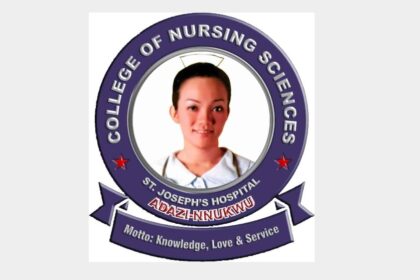In this guide, we’ll explore all the programmes offered in CONSA, along with their specific admission requirements. Whether you aspire to become a nurse, midwife, or a dual-qualified healthcare professional, CONSA provides accredited pathways to help you achieve your career goals.
The College of Nursing Sciences, St. Joseph’s Hospital, Adazi-Nnukwu, is one of the foremost institutions in Anambra State for training nurses and midwives. Known for its long-standing history of excellence, it offers a blend of modern facilities, experienced faculty, and comprehensive training that meets the standards of the Nursing and Midwifery Council of Nigeria (NMCN).
College of Nursing Sciences, Adazi-Nnukwu (CONSA)
St. Joseph’s Hospital, Adazi-Nnukwu, was founded in 1938 by the Catholic Archdiocese of Onitsha as the only medical institution in the old Awka Province and its environs. The School of Midwifery began in 1940, offering Grade II Midwifery Training, and was later upgraded to Grade I in 1963. For decades, it ran both Basic and Post Basic Midwifery programmes until 2003 when it streamlined to Basic Midwifery.
With the reformation of nursing education in Nigeria and the transition to non-terminal OND and HND programmes, the institution expanded to accommodate both Schools of Nursing and Midwifery. This development led to its upgrade as the College of Nursing Sciences, St. Joseph’s Hospital, Adazi-Nnukwu, Anaocha LGA, Anambra State — now running both Basic Nursing and Basic Midwifery alongside other specialised programmes.
Programmes Offered in CONSA
CONSA offers three main programmes, each of which is explained in detail below.
Basic Midwifery
The Basic Midwifery programme is one of the three programmes offered in CONSA. It is a three-year (six-semester) course approved by the Nursing and Midwifery Council of Nigeria (NMCN). It is designed to equip students, male or female, with the skills, knowledge, and clinical experience necessary to qualify as a Registered Midwife (RM).
Training covers antenatal, intrapartum, and postnatal care, including preventive health measures, safe delivery practices, early detection of complications, emergency management, and newborn care. Students also learn family planning, preconception care, and prenatal screening.
Career Path: Graduates can work in tertiary hospitals, general hospitals, maternal and child health centres, primary health centres, and international healthcare institutions.
Basic Midwifery Admission Requirements:
- Five (5) O’Level credits in English Language, Mathematics, Biology, Chemistry, and Physics in no more than two sittings (WAEC/WAEC, NECO/NECO, WAEC/NECO accepted).
- NABTEB results must be obtained in one sitting and cannot be combined with other exam bodies.
- Entrance Examination and Interview.
- Six months of intensive training before the Introductory Examination, after which successful students are indexed by the NMCN.
Basic Nursing
The Basic Nursing programme is one of the three programmes offered in CONSA. It is a three-year (six-semester) course approved by the NMCN and designed to prepare students for the Registered Nurse (RN) qualification. Training combines theory and clinical practice, focusing on patient care for medical and surgical conditions, vital signs monitoring, medication administration, health education, emotional support, and follow-up care.
Career Path: Registered Nurses can work in tertiary, secondary, and primary healthcare institutions within Nigeria and abroad.
Basic Nursing Admission Requirements:
- Five (5) O’Level credits in English Language, Mathematics, Biology, Chemistry, and Physics (max. two sittings; WAEC/WAEC, NECO/NECO, WAEC/NECO accepted).
- NABTEB results must be in one sitting only and cannot be combined.
- Entrance Examination and Interview.
- Six months of intensive lectures and clinical training before the Introductory Examination. Only successful students are indexed by the NMCN.
Post Basic Nursing
The Post Basic Nursing programme is one of the three programmes offered in CONSA. It is an 18-month (three-semester) course approved by the NMCN. It is designed for Registered Midwives seeking to become Registered Nurses, thereby earning a double qualification.
The curriculum focuses on advanced nursing theory, practical skills, and clinical exposure to enable midwives to provide comprehensive nursing care across various specialties.
Career Path: Graduates can work in national and international healthcare facilities, including tertiary hospitals, general hospitals, and primary healthcare centres.
Post Basic Nursing Admission Requirements:
- Five (5) O’Level credits in English Language, Mathematics, Biology, Chemistry, and Physics (max. two sittings).
- Must be a Registered Midwife with a current practising licence.
- Entrance Examination and Interview.
- Successful candidates join Basic Nursing from second-year first semester and are subsequently indexed by the NMCN.
Vision & Mission
Vision: To train nurses with leadership qualities, responsibility, innovation, self-education skills, and research capacity, enabling them to excel locally and internationally.
Mission: To create opportunities for students to fulfil their professional potential, meet modern healthcare needs, and provide quality, affordable, and equitable healthcare services.
Career Opportunities for CONSA Graduates
Graduates from CONSA are well-positioned for diverse roles, including:
- Tertiary Healthcare: National hospitals, federal medical centres.
- Secondary Healthcare: State general hospitals.
- Primary Healthcare: Community health posts, maternal and child care facilities.
- Private Practice & NGOs: Clinics, health advocacy groups, and international aid organisations.
The programmes offered at the College of Nursing Sciences, St. Joseph’s Hospital, Adazi-Nnukwu, provide structured, accredited, and progressive routes to becoming a highly skilled healthcare professional.













